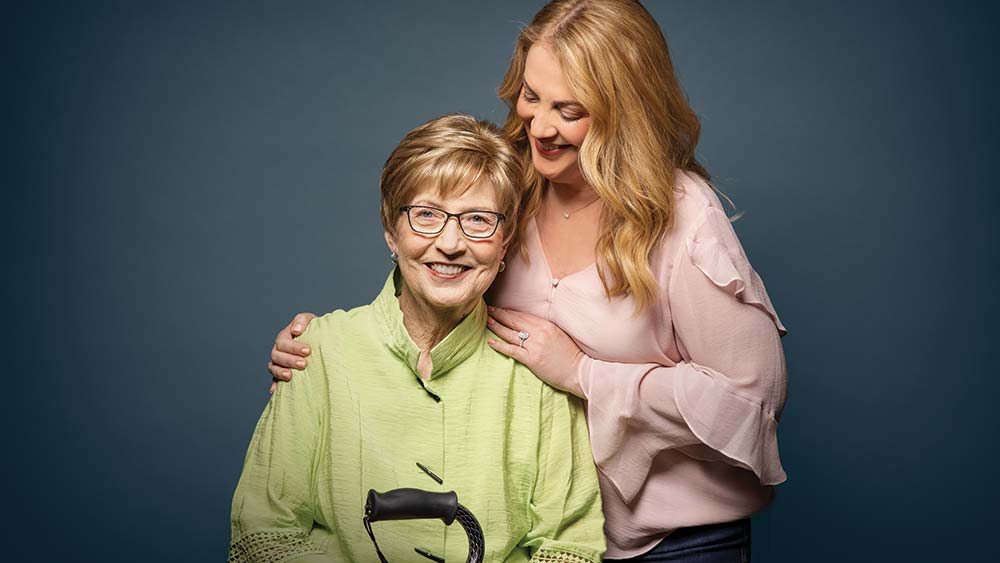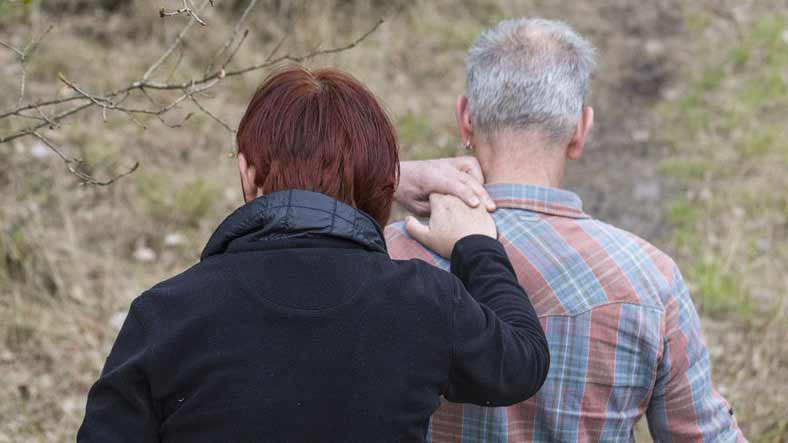

3 Things Family Caregivers Need–And How You Can Help
“How are you doing?” is a question we ask and hear often, but sometimes it’s just another way of greeting someone. Detailed answers about how a person is really doing—in regard to their health, work or personal life—are not usually expected.
November might be a great month to dig a little deeper when we ask that question, because it’s National Family Caregivers Month. People who are family caregivers may be feeling overwhelmed or exhausted, or any number of other emotions and conditions that other people might not notice. Chances are they’d appreciate someone listening to them—and offering help.
“While nonprofessional caregivers provide invaluable service to others—often jettisoning careers and personal desires in the process—they often haven’t been asked how they are doing,” notes an article in Next Avenue, an online publication for older adults.
The American Psychological Association adds, “There is often little or no routine assessment of caregivers’ well-being by healthcare or psychosocial providers, and there is little attention to problems and concerns they experience or report in their role as care providers.”
There are many ways to make a meaningful difference for family caregivers. Here’s a look at three things caregivers often say they need, along with specific ways family and friends can help.
Most caregivers will say they don’t have enough time in a day to complete all of their caregiving duties and take care of their own needs, whether those be home, family, work or other responsibilities. Here are some ideas to help:
- Ask, “What can I do to help today?” Asking, rather than assuming, what they need is crucial. Asking for specifics is better than a vague offer like, “Let me know if there’s anything I can do to help.” Be prepared to help with anything from visiting to housecleaning or running errands.
- Instead of “today,” maybe you can say “every day this week” or even “from now on.” Recognize that their need for help will continue for as long as they are a caregiver.
- Caregivers who are thrust into the role suddenly may need help learning things like how to bathe the person they’re caring for or how to change their incontinence briefs. Help them by finding YouTube videos or other resources.
There’s a good chance the caregiver has had to reduce their work hours or even quit their job. They may be using their own funds to pay for home health care services or home health aides. You might help them by:
- Offering to help pay for in-home services or any supplies they use that are not covered by insurance or Medicare/Medicaid.
- Asking if there are times of day when you can stand in for them while they are at work.
- Treating them by bringing a home-cooked meal or dessert, or their favorite carryout meal. First ask them when would be a good date and time.
The common theme running through all of these caregiver needs is time. Family caregivers need more time than just to take care of their own tasks. They also need time to rest and recharge or go on a vacation. Here are some ways you can help:
- Look into local nursing homes or rehabilitation centers that offer respite care. The person who needs care moves into the facility temporarily, allowing the family caregiver to take a break from caregiving. The older adult will enjoy the same meals, care and activities as the other residents. Perhaps you can also offer to help pay for respite care. In-home care agencies also provide respite care for seniors—the advantage here is that the senior can be cared for in their own home while the family caregiver is away.
- Work with other family members to create a schedule for caregiving while the primary caregiver takes some time off. Agency caregivers can also help fill out the schedule.
- Buy the caregiver an outing they’d enjoy. Movie or theater tickets, a spa day, or a tee time (and a cart!) at the local golf course are just some examples. Arrange replacement care while they’re out.
Play to Your Strengths
The National Institute on Aging (NIA) offers some wise advice when deciding how to offer help. “When thinking about who should be responsible for what, start with your strengths,” the NIA advises. “Consider what you are particularly good at and how those skills might help in the current situation.” If you’re a wizard at cleaning, offer that. Enjoy research? Help with information on care and medical conditions. It's important to offer help, but equally important to do it in a way that is sustainable for you.
Right at Home Can Help
Right at Home’s professional in-home caregivers can help family caregivers by taking over caring duties on a schedule that works for everyone and provides a welcome break. From light housekeeping to meal preparation to assistance with bathing and hygiene, in-home care services can make a big difference in the daily life of both the family caregiver and the person needing help. Our unique five-step process ensures just the right fit for your family. Download our FREE Adult Caregiving Guide full of helpful tips as you’re caring for your loved one. Or, use our location finder to contact your local Right at Home and ask for a FREE in-home consultation.







